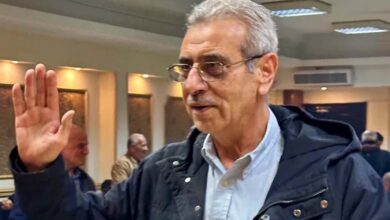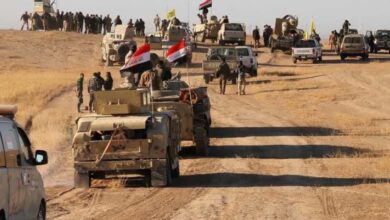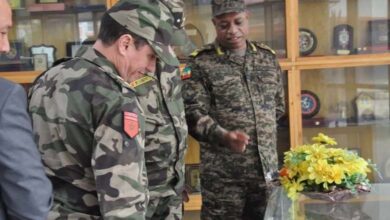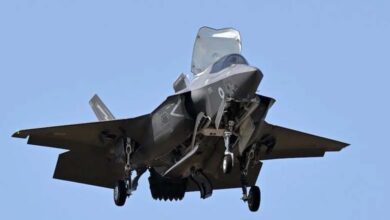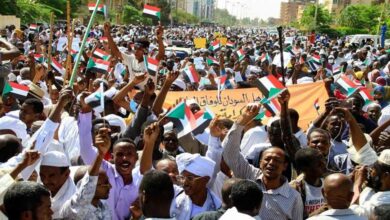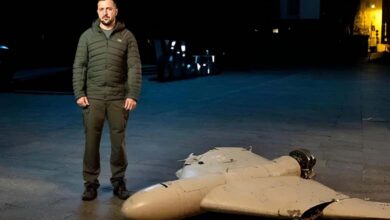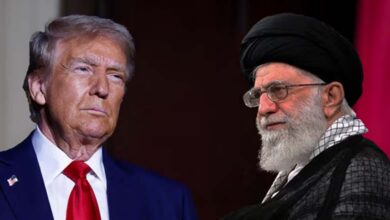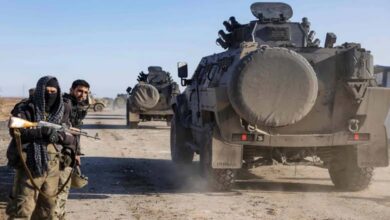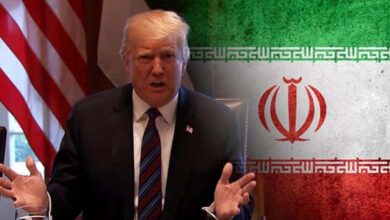Iran–Israel Confrontation: UAE Calls for Immediate End to the War
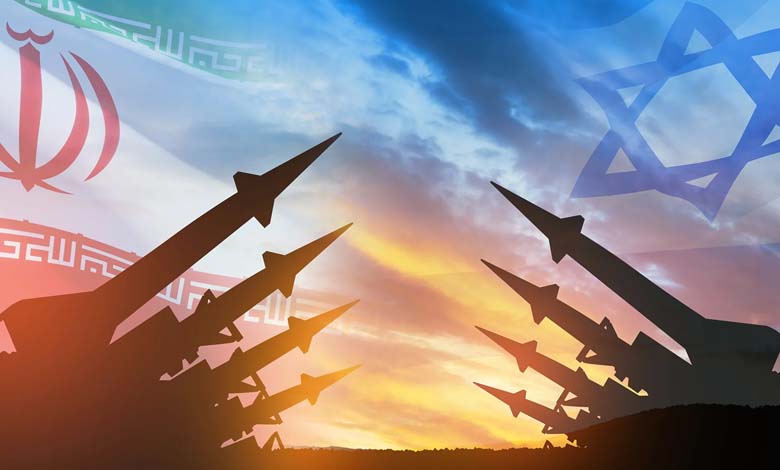
Amid growing international concern and rising hostilities between Iran and Israel, the United Arab Emirates has stepped up diplomatic efforts to ease tensions and promote de-escalation.
As part of these efforts, Dr. Anwar Gargash, diplomatic advisor to the UAE president, renewed his country’s call to “immediately end the war and address critical issues through negotiation.”
He warned of the ongoing war’s potential impact on both countries and the entire region.
-
Iran and Israel: Cross-Strikes… Is There Still a Window for Nuclear Negotiations?
-
No Ceasefire in Gaza until De-escalation between Iran and Israel
In a statement posted on X on Thursday, Dr. Gargash said: “The Israeli attack on Iran and the ongoing war between them is a defining moment with deep consequences for both nations and the region.” He added: “Wisdom and responsibility require an immediate halt to the war and engagement in resolving fundamental issues through dialogue. This is the lesson we learn from the region’s past wars.”
Simultaneously, UAE Foreign Minister Sheikh Abdullah bin Zayed Al Nahyan met with Mexican Foreign Minister Juan Ramón de la Fuente on Thursday in Mexico City. They discussed current regional and international developments and strategies to uphold global peace and security.
-
Troubles and Crises: International Economy Affected by Iran and Israel Events
-
Iran-Israel Escalation: Mass Launch of Evacuation and Withdrawal Phases
These talks are part of the UAE’s broader diplomatic initiative to de-escalate tensions between Iran and Israel and help ensure regional stability and security.
The UAE’s diplomatic efforts include official statements, consultations, and direct contact with leaders and officials from over 35 countries around the world. These actions reflect the UAE’s belief in the need for coordinated regional and international efforts to prevent further escalation.
-
Anticipation and Preparations in Israel for a Double Attack from Iran and Yemen
-
Israel’s Strikes on Iranian Nuclear Facilities: Conflicting Assessments and Unclear Outcomes
Since the outbreak of military conflict last Friday, both President Sheikh Mohammed bin Zayed and Foreign Minister Sheikh Abdullah bin Zayed have been in daily communication with global leaders to seek de-escalation and prevent the conflict from expanding.
This approach reflects the UAE’s firm commitment to diplomacy and dialogue as the only viable means to achieve stability, prosperity, and justice for the region’s peoples.
-
Israel and Iran: Everything You Need to Know About The Fire Saturday
-
Israel Vows Retaliation as Iran Issues Threats — Red Lines Crossed and Strikes to Continue
Among the latest discussions, Sheikh Mohammed bin Zayed held a call on Wednesday evening with Russian President Vladimir Putin, focusing on the developments in the Middle East and their serious implications for global security. Both leaders emphasized the need for restraint and a return to dialogue, affirming support for diplomatic solutions to reduce tensions.
That same day, Sheikh Mohammed also hosted Serbian President Aleksandar Vučić at Qasr Al Watan in Abu Dhabi. The two leaders exchanged views on regional and global developments and highlighted the need to intensify efforts to restore peace and stability through diplomatic dialogue and peaceful means.
-
Israel Launches Massive Strike on Nuclear and Missile Facilities in Iran
-
Is an Attack Imminent? US Newspaper Reveals Israeli and Iranian Preparations
Over the past few days, UAE President Sheikh Mohammed bin Zayed Al Nahyan held phone conversations with several world leaders, including Iranian President Massoud Pezeshkian, Turkish President Recep Tayyip Erdoğan, French President Emmanuel Macron, Cypriot President Nikos Christodoulides, and the Prime Ministers of Iraq Mohammed Shia’ Al-Sudani, the United Kingdom Keir Starmer, Italy Giorgia Meloni, and Greece Kyriakos Mitsotakis.
During these discussions, Sheikh Mohammed bin Zayed and the heads of state and government emphasized several key points for resolving the crisis:
-
In Iran’s Eid Sermon: The U.S. and Israel Present with Warnings
-
“Surprise” in Israeli Attack on Iran: Advance Warning of Date and Targets?
- The need to intensify efforts to de-escalate the situation and return to dialogue.
- The importance of resolving disputes through diplomatic means to avoid further crises and maintain regional security and stability.
- Full support from the UAE and its partners for any initiative that promotes peace and security in the region.
- The need to exercise maximum restraint under the current circumstances.
- The urgency of increasing efforts to calm tensions and prevent the conflict from spreading.
On the diplomatic front, UAE Foreign Minister and Vice Prime Minister Sheikh Abdullah bin Zayed Al Nahyan held phone calls with Kaja Kallas, High Representative of the EU for Foreign Affairs and Security Policy, as well as Sheikh Mohammed bin Abdulrahman Al Thani, Prime Minister and Foreign Minister of Qatar, and Najib Mikati, Prime Minister of Lebanon.
-
Leaks Reveal Israeli Preparations to Strike Iran and U.S. Concerns
-
Details of Iran’s “Recruitment” of an Israeli and His Girlfriend to Carry Out an “Assassination” Operation
He also spoke with his counterparts in various countries, including Iranian diplomat Abbas Araghchi, Saudi Foreign Minister Prince Faisal bin Farhan, Jordanian Foreign Minister Ayman Safadi, Iraqi Foreign Minister Fouad Hussein, Moroccan Foreign Minister Nasser Bourita, Kuwaiti Foreign Minister Abdullah Ali Al-Yahya, Omani Minister Badr bin Hamad Al-Busaidi, Bahraini Foreign Minister Abdullatif bin Rashid Al-Zayani, and Syrian diplomat Assad Al-Shibani.
Additional conversations were held with Russian Foreign Minister Sergey Lavrov, German official Johann Wadephul, Indian Foreign Minister Subrahmanyam Jaishankar, French official Jean-Noël Barrot, UK Foreign Secretary David Lammy, Greek Foreign Minister Giorgos Gerapetritis, Cypriot Foreign Minister Constantinos Kombos, Pakistani Minister Mohammad Ishaq Dar, Italian Foreign Minister Antonio Tajani, Turkish Foreign Minister Hakan Fidan, and Hungarian Minister Péter Szijjártó.
-
In Case of an Israeli Attack: Source Discusses Iran’s Plan and Target Bank
-
Iranian Missiles on Israel: Launch and Interception Costs
Roadmap
As part of its diplomatic efforts to resolve the crisis, the United Arab Emirates issued a statement on Tuesday outlining a comprehensive roadmap to de-escalate the conflict between Iran and Israel and to restore regional and global peace and security.
In the statement, Sheikh Abdullah bin Zayed Al Nahyan presented a UAE-led strategic vision based on two key principles:
- The need to pursue a diplomatic approach that leads both parties to de-escalation and an end to hostilities, preventing the conflict from spiraling further.
- The urgency of taking swift action to achieve an immediate ceasefire before the situation becomes uncontrollable.
-
Can Hezbollah stand up to Israel? Iranian President expresses doubts
-
Iran’s Secret Document Ignites a Dispute within the Israeli Military and Netanyahu’s Office
The roadmap includes several mechanisms:
- Coordinated and urgent action at regional and international levels to avoid the widening of the conflict and contain its repercussions on peace and security.
- A call for the United Nations and the Security Council to assume their full responsibilities in preventing further escalation.
- The implementation of immediate and necessary measures to achieve a ceasefire and ensure lasting peace and security.
The UAE statement followed a joint communiqué issued by foreign ministers from 20 countries, led by the UAE, expressing deep concern over the recent escalation between Israel and Iran and calling for a swift return to negotiations.
-
Will Iran Abandon Its Revenge Against Israel in Exchange for a Gaza Ceasefire?
-
Intense Cyber War Between Israel and Iran
-
Washington Tests Military Capabilities Amid Escalation Between Israel and Iran


